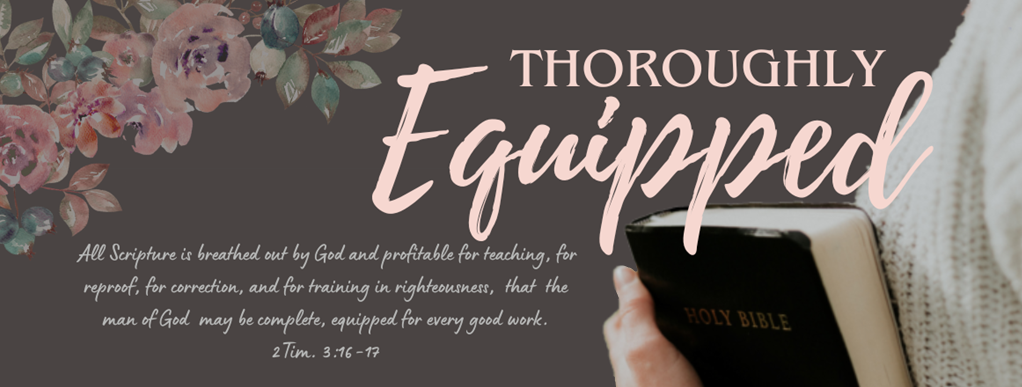Homemaking and the Doctrine of Vocation

To listen to this post click here.
I thought it best to just dive right into the purpose of this post. That being, to encourage every Christian woman who reads it to look into the doctrine of Vocation, taught by Martin Luther, and laid out in Scripture. Why learn about it? Because it lightens the heart, eases anxiety, and produces more Good Works. This, Lord willing, I will go into more detail in another post, but today I want to make a case, and hold high the vocation of Homemaker. I truly believe that the doctrine of vocation and good works will change the way you look at housework and all the efforts of a Christian woman thereof. While teachings on the doctrine of good works will affect every female vocation such as wife, sister, mother, etc. there is one vocation in particular that most women will have regardless of whether they are called to the others. Not every woman is called to be a wife or a mother, but almost every woman will be called to homemaking. And this calling starts very young. A female toddler can be taught how to apply herself to taking care of the home as we teach our young ladies how to cook, clean, and maintain a house.
*side note: I understand that some women may have homes and are dealing with injuries, illnesses, and diseases to which our work in our homes can be painful, difficult and limited. At the time of writing this, I am dealing with an injury to my dominant arm restricting what I can do in my home. In the future, God willing, I intend to write about how the doctrine of vocation applies even to those dealing with these issues.
The problem: Feminism and Homemaking
I’ll be honest, I never aspired towards a career. All throughout my high school years I moseyed along never really thinking about what I might want to do as a career. Going to public school and meeting with school counselors, there was always the push to know what I should do. The thing was, I knew what I wanted to be when I grew up, it just wasn’t on the list. All I aspired to was to be a mother. But an adult woman must find her place and contribute to society apart from the home. Sound familiar? Yes, that infamous “F” word.
It amazes me how teachings become ideology and how ideology will shape and effect other beliefs. I was always interested in why people believe what they believe. Growing up, Feminism taught me that I could do and be anything that a man could if I put my heart into it. So why in the world would I want to be a Stepford Wife? Women who conquered man’s work were heroes. Whether that work be big or small, we were told to chase it, because good works were there, outside of the home. The more women are at work in the world, the more Glory.
And, yes, this ideology is in the Church. Same claims, same story, same glory. Feminism in the Church claims that we can be and do anything a man can do in the Church. The more women pastors, the more women in ministry. The more women in church service, the more women in missions, the more God gets Glory. Service to God outside of the home is where our good works are found; this is what is often taught in the evangelical world today.
*Side note here: apart from female pastors, service to and for the Church can be good but only when done in faith. Service as a female pastor is never a good work because God has instituted that service be done by a man.
Scripture tells us that “whatever [we] do, in word or deed, [we] do everything in the name of the Lord Jesus, giving thanks to God the Father through him.”(Col.3:17). I think a lot of times this is taught in the context of work outside of the home. For the most part, we believe and have been told that Good Works are such things as giving and supporting a church, serving the community through food kitchens and donations, even such things as environmental clean-ups, planting a tree, or in our day, wearing a mask. I’m not saying these are not good works, but I do want to say there are more to good works than what is normally taught.
So what is the doctrine of Vocation and how does that apply to good works?
Google’s Dictionary states that vocation is a strong feeling of suitability for a particular career or occupation,a person’s employment or main occupation, a trade or profession. In Evangelical circles today, people would say that a vocation is what career or occupation you feel you are called to. And this word “called” has a lot of baggage tied to it that can be very subjective. What do I mean by this? Evangelicals believe that to be “called” one must have received personal revelation from God to go into a God given vocation. This is very subjective and not very biblical.
During the Reformation the medieval Church taught that vocation was assigned to clergy for the most part. Basically, that the advancing of God’s Kingdom took place in the specific vocations of the clergy. The underlying thought went this way: Being that a vocation was a calling from God, only those things involved with the institution of the Church and the services therein would advance the Kingdom. Because the Kingdom was advanced through the service of the Church institution, any service rendered to it was considered a good work.The Church urged nothing but “…the so-called self-elected works, such as ‘running to the convent, singing, reading, playing the organ, saying the mass (think attending church regularly, service on church boards, being in the worship band, or any other form of volunteering for Church service), praying matins, vespers, and other hours (think prayer closet, attending prayer meetings), founding and ornamenting churches, alters, convents (think tithing, and monetary support of church building and functions), gathering chimes, jewels, vestments, gems and treasures (think traveling to gather monetary support for church building and missions), going to Rome and to the saints, curtsying and bowing the knee (one might equate attending church conferences and popular speakers to this), praying the rosary and the psalter, etc”(A Treatise on Good Works, Luther, PDF pg.5; correlation mine) as good and pleasing to God.
Then Luther came proclaiming that Scripture taught that Christ’s Church is “…being built up a spiritual house, a holy priesthood, to offer up spiritual sacrifices acceptable to God through Jesus Christ” (1 Pet. 2:5). That now, through Christ our mediator; we as priests, offer up spiritual sacrifices and draw near to God (Heb. 4:14-16; 1Pet. 2:9; Rev. 1:5-6). The Reformers taught what was known as the priesthood of all believers. This was not saying that all believers were now to become ordained clergy but that every believer, whatever work he is engaged in should be done to the glory of God. That meant that everyone had a vocation. “The farmer has a vocation, the banker has a vocation” etc. And remember how during medieval times they lived under a feudal system? The farmers were not farmers by choice back then. If you were the son of a farmer, a farmer you would be. This was their “calling” not given by special leading or revelation,not even given by specific talents. Instead, God by His Providence, called you to serve in His Kingdom in whichever vocation you were in. Martin Luther taught that we all are currently in many vocations. A man can be in the vocation of farmer, husband, and father; in which he can serve God and advance the Kingdom in all three.
But what was it that made a farmer’s work as good, if not better than the work of clergy and the self-elected works as taught by the church in Luther’s day?
Martin Luther dealt with the essence of good works, faith. Luther pressed that it was faith that was the true work that pleased God (Heb. 11:6). Faith is the first commandment in action, to love God with all our heart, mind, and strength and from which we can truly love our neighbor. “The first and highest, the most precious of all good works is faith in Christ, as He says, John VI (John 6:28-29), when the Jews asked Him: ‘What shall we do that we may work the works of God?’ He answered: ‘This is the work of God, that ye believe on Him Whom He hath sent”( A Treatise on Good Works, PDF pg. 13). From faith, all actions and workings done by the Christian are pleasing to God because of Christ. Col. 1:21-23 says “And you, who once were alienated and hostile in mind, doing evil deeds, he has now reconciled in his body of flesh by his death, in order to present you holy and blameless and above reproach before him, if indeed you continue in the faith, stable and steadfast, not shifting from the hope of the gospel that you heard…”. Because of Christ, we are presented holy, blameless, and above reproach as we go about our day walking in our faith in the Gospel.
So what does this mean for us Christian women? And what does that have to do with Homemaking?
That means changing a diaper in faith towards God please Him. Sweeping the floor in faith towards God pleases Him. Watching a movie with your family in faith towards God pleases Him. And faith in the Father, the Som, and the Holy Spirit grows more and more from being in His Word.
So what vocations are you currently called to serve God in? Are you a wife? Then how do you serve God in that? By submitting, loving, respecting, and serving your husband (Ephs.5:22-24, 1Pet.3:1;Col.3:19; Tit. 2:5). Have you been given children? Then you are called to the vocation of mother where you serve God by loving them, teaching them God’s Word, supplying their needs, etc (Ephs.6:4; Prov.22:6; Psalm 127:3-5; Deut.6:5-9). See where I’m going?
So what about house work? Yes! Homemaking is a vocation! The older women are to instruct the younger in how to work in the home so that God’s Word is not reviled (Tit.2:3-5). That means that taking care of our homes, cooking, cleaning and maintenance of it, done in faith to God is pleasing to Him. What happens at the home is a reflection of our character. A woman who understands the doctrine of vocation grasps that maintaining and cleaning her home reflects who God is, and thankfully serves Him in the care of those things He has given. The wise woman in Proverbs 31 reflects this truth beautifully.
Faith, Homemaking, and the Glory of God
I find it interesting that the Bible directs women to be workers from home. Why did the Holy Spirit choose to instruct us to focus our efforts and time in the home? And how is it that our working at home glorifies His Word? Obeying those directions is how we love God in our homes. Our homemaking is an expression of our love towards God first and foremost. It is then an expression toward our husbands and children. And sound doctrine is at the root of it.
In Titus 2 we read:
“But as for you, teach what accords with sound doctrine. Older men are to be sober-minded, dignified, self-controlled, sound in faith, in love, and in steadfastness. Older women likewise are to be reverent in behavior, not slanderers or slaves to much wine. They are to teach what is good, and so train the young women to love their husbands and children, to be self-controlled, pure, working at home, kind, and submissive to their own husbands, that the word of God may not be reviled”(vs 1-5).
When we receive sound doctrine (teaching) we are taught what is good. Paul here is instructing Titus to teach what accords with sound doctrine. Why? Because sound doctrine encourages and leads to what is good, that is good works. Sound doctrine, what is taught in God’s Word as given to us by the Prophets and the Apostles (Heb.1:1; Luke 10:16), instructs us in our faith to produce good fruit. And notice what Paul is saying is good for a woman to do; to love husbands and children, be self-controlled, pure, working at home, kind, and submissive to our own husbands. It is good and pleasing to God to work at home.
Our popular Evangelical Women’s ministry does not emphasize this enough. I believe what they teach comes from a more feminist, self-centered doctrine. A doctrine that boosts the ego to draw women to serve the community more than the home. Meme after meme, quote after quote, implying that housework can be neglected for the sake of relationships, careers, service to our churches and communities. Of course, don’t make housework your only good work, but let’s not go the opposite direction and believe that housework is not a good work. Let us put it in its rightful place. It is one of the ways, done in faith, we glorify God.
Isn’t it interesting that Paul doesn’t say that older women are to teach the younger to find their spiritual gifts and use it for the church, or to receive a purpose or dream from God and to work toward it.These doctrines and teachings are completely absent from this letter. He doesn’t say that God wants to use us in extraordinary ways. In fact, it’s almost as if Paul is saying that God works in the vocation of a woman whose actions and works we find very ordinary.
This includes women who are not married and do not have kids. Notice that Paul instructs the older women to teach the younger women. I am an older woman who has a teenage daughter. Besides teaching her God’s Word (giving her sound doctrine), my role is to train her to love her husband and children (if it be God’s will), be self-controlled, pure, work at home, kind and submissive. I am to train her mainly by example and practice what I preach. This too is a good work, and through it I pray God advances His Kingdom.
So, in conclusion, the doctrine of vocation teaches us that the Church is made up of a priesthood of believers to which we please God by our faith. It is our faith in Christ that produces good works. Romans 14:23 says that whatever is not done in faith is sin. Therefore, as Martin Luther says, “Not everyone can note and tell for himself when he does what is good or what is not good; for if he finds his heart confident that it pleases God, the work is good, even if it were so small a thing as picking up straw”(A Treatise on Good Works, PDF pg. 14). In Titus 2 we see what is good to God and what does not revile His Word. Let us trust what He has told us through the Apostle Paul, and know in our hearts that our work in our homes pleases Him greatly. So let us be all the more diligent toward these things, and praise God for His Word, Christ and His work, and the Spirit’s work in us to accomplish them.
Until next time, let us take pleasure in serving our Lord at home, and being in His Word.
MelbaToast




Recent Comments